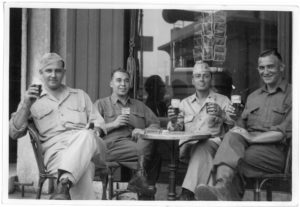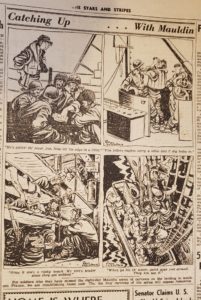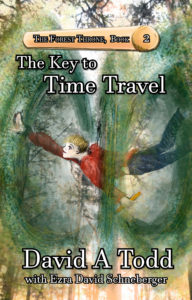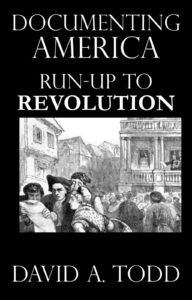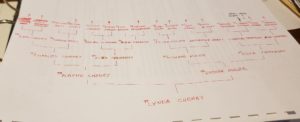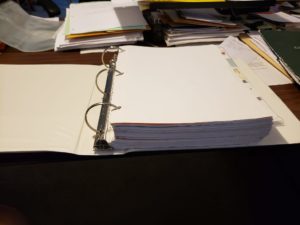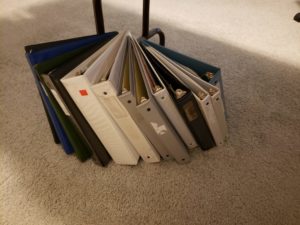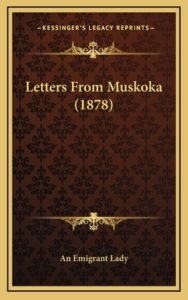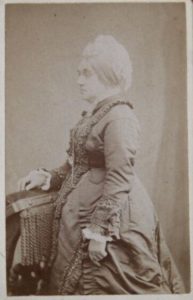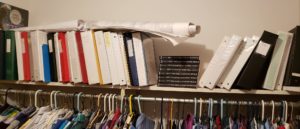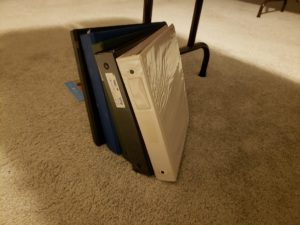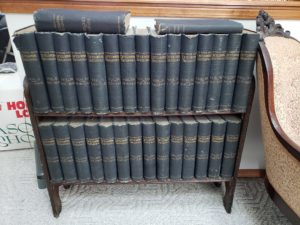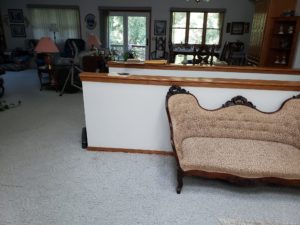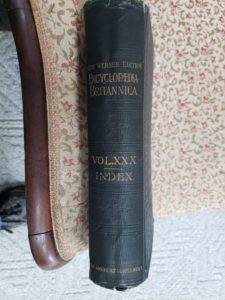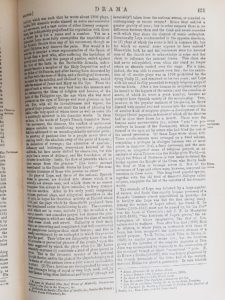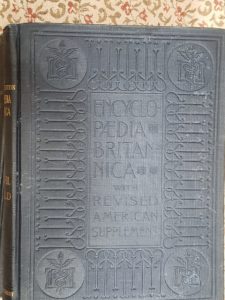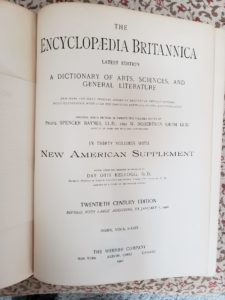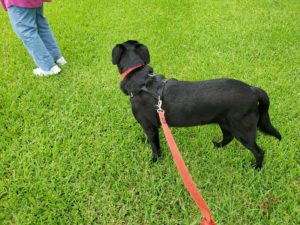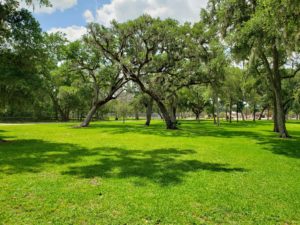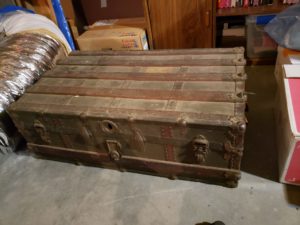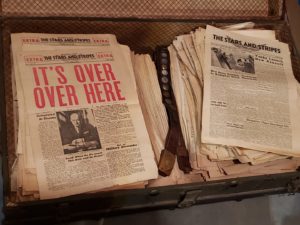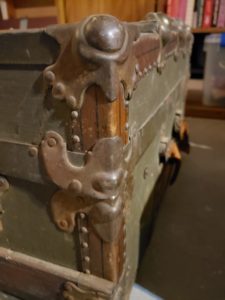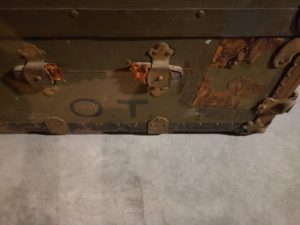Dateline: Sunday, 12 Nov 2023
From time to time, life gets so busy that I fall back to a habit that served me well in my engineering career: making a to-do list. Not that my days are really so busy that I miss deadlines, doctor appointments, club meetings, etc. Those are relatively few in number, and easily remembered—at least those happening in the next month are.
But as I look around the house, I see lots of things that need doing. Some are small things, but they pile up. It is a needed task to clean up as much as I can before company comes Thanksgiving week. Here in The Dungeon, if I look over to the left, the worktable with our printer has piles of papers. The biggest pile is scrap paper, being kept for printing drafts of my writing for proofreading or critiques. It’s ugly, but it’s going to stay. Next to it is a notebook of genealogy files that I’m slowly scanning and saving to the cloud so that I can get rid of the paper. Also on that table are a few miscellaneous papers that I need to file. One is a charitable donation receipt I need to put with the 2021 tax returns. So far I haven’t felt like dedicating the two minutes needed to do that.
That work table also has two bank statements to file. That’s another two minute task I just haven’t felt like doing.
A little farther away are bookshelves lining the basement family room walls. At one time these were nice and neat, separated into fiction and nonfiction, and alphabetized. They may still be mostly that way, but years of reading and re-shelving, selling or donating, pulling other books from boxes, have resulted in some loose of organization. Fortunately, correcting that, while a big task, isn’t urgent.
What is urgent? Filing receipts! I suppose that’s number one. Many things I used to file have gone digital. Yet there’s still a big pile of them to file. Most of them are medical, the papers you get with each prescription. Some are medical info, others are receipts. Others are grocery store receipts, travel receipts, a few insurance statements, and a few brokerage papers that we haven’t yet switched over to digital. Once I set my mind to it, I can have these all sorted, ordered by date, and filed in about two hours. Maybe that will be a Monday task.
Then there are all the things involved with home repairs. We are inching forward with gutter and downspout replacement. My water damage restoration contractor bailed on me, so I’m having to go through it all again with a new one. I hope to hear something this week from him. And I still need to get the floor guy out here to figure out if I’ll be able to change out the ancient wall-to-wall carpet with modern flooring after all the other work is done. I guess I need to carve out a little time today to figure out which number I called was him and call to set up an inspection time.
Then there’s flu shots. We normally get them in early October, but couldn’t this year and I haven’t made appointments since then. That might be a today task as I can do that online. Oh, and the Silver Dragon need some routine servicing. I think Wednesday is free, if I can make an appointment on Monday. Oh, year, just remembered: I have some over the counter things to order as part of our Medicare Advantage Plan benefits. Better do that today as well.
Somewhere in there I need to work in some stock trading. The latter is mostly Monday through Friday, only 15 min to a half hour a day, plus an hour wrap-up on Saturday.
See why I need a to-do list? I have to grind through these things, trying to get everything done without letting something fall through the cracks.
I’m going to end this blog post here, and do those on-line things while I can. I hope on Friday I can post that I got lots done, and feel less stressed about everything.
